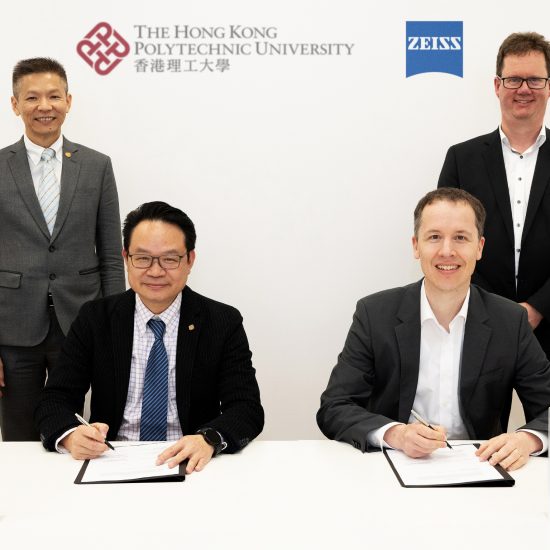Dubai Government expects its Dh376.8 billion (US$102.67 billion) economy to grow at 3.5 per cent in 2018, slightly lower than the UAE economic growth, pegged at 3.9 per cent, according to a news release issued by the Department of Economic Development (DED), the government’s trade licensing body.
The country has just implemented a 5 per cent Value-Added Tax (VAT) from January 1, 2018, expects to raise Dh12 billion from VAT in the first year – 7 per cent of which will be allocated to the local governments of the seven emirates that make up the UAE federation.
“Diversification and a relatively high degree of openness in Dubai along with the positive impact of global trends will boost economic growth in the emirate in 2018 and beyond,” according to the Dubai Economic Outlook report released on Wednesday. “Dubai will achieve 3.5 per cent growth in 2018, also drawing on the continued recovery in global trade and the highest growth rates in most developed economies.
“Dubai’s real GDP grew to Dh376.8 billion in 2016, up 2.9 per cent from 2015. The Government of Dubai has in recent years adopted a fiscal policy to rationalise public spending by reducing budget deficit as a percentage of GDP from 2 per cent in 2010 to 0.4 per cent by 2013.
“Dubai has since maintained balanced accounts in 2015 and 2016 following which the government adopted an expansionary fiscal policy to stimulate the economy. The emirate’s success in reducing the budget deficit helped stabilise macroeconomic factors and resume growth in various sectors, especially banks, financial markets, trade, tourism and real estate.”
One of the factors that boosted Dubai’s ability to balance its budget was a drop in public investment spending as many major projects were completed. The ratio of investment to total public spending has dropped from a peak of 36 per cent in 2010 to about 17 per cent in 2016, passing a low ratio of 11 per cent in 2014. Government revenues, totalling Dh46.1 billion in 2016, came from tax revenues (customs duty and taxes on banks), fees and fines, oil revenues and investment returns.
However, in a report issued earlier, the International Monetary Fund (IMF) said, high public debt could rise sharply under severe shocks. “Under a severe global downturn scenario, which assumes a real GDP shock, lower real interest rates, and deterioration in the primary balance in the medium term, Dubai’s government debt would increase to about 35.7 percent of GDP in 2022,” IMF said.
“A scenario that combines a global downturn with a real estate shock, under which the government would take over 20 percent of the GREs’ total debt in the medium term, would imply a substantial increase in the government debt-to-GDP ratio, to 73.3 percent, three times as large as under the baseline.”
Inflation in Dubai fell from an annual rate of 3.7 per cent in 2015 to 2.9 per cent in 2016 after rising steadily from 1.3 per cent in 2013, due to slower price inflation in the housing, water, electricity, fuel and health sectors. In contrast, other major spending groups such as restaurants, hotels, food, non-alcoholic beverages, education and entertainment saw higher inflation rates in 2016. Rising interest rates in 2017 coupled with a liquidity contraction suggest that inflationary pressures will remain moderate in 2018.
The total value of Dubai’s trade in non-oil goods was Dh1.28 trillion (US$348.77 billion) in 2016, but its trade balance has been characterised by a permanent deficit as Dubai is a global hub for global and regional trade. Dubai’s imports are much more than its total exports as most imports are transported to other emirates and to neighbouring countries without them being registered as re-exports.
Dubai’s official statistics are divided into 19 independent sectors and seven of these accounted for 77.2 per cent of Dubai’s GDP of Dh376.8 billion in 2016. The sectors include wholesale and retail trade, transport and storage, financial services and insurance, manufacturing, real estate activities, construction, accommodation and food services, ranked according to their respective GDP contribution.
Wholesale and retail trade
The wholesale and retail trade sector (which also includes the motor vehicles and motorcycles repair) is the largest sector in the economy of Dubai with an added value of Dh103.4 billion and 27.5 per cent of GDP in 2016. The sector is the most heavily employed sector in Dubai and accounted for 22.4 per cent of the workforce in 2015. It plays an important role in supporting consumer spending in the economy and h its backward and forward linkages sustain economic activities in other sectors such as transport, warehousing, food and accommodation. Real value added by the sector was 1.3 per cent, less than the overall growth rate in 2016.
Foreign investment has helped turn Dubai into a global shopping and tourism destination. Gross fixed capital formation in wholesale and retail trade was Dh17.1 billion between 2013 and 2015 and total investment in the sector was Dh76 billion between 2011 and 2015. A labour-intensive but relatively low wage sector, wholesale and retail ranked seventh in terms of productivity in Dubai.
The manufacturing sector added Dh35.7 billion in 2016 – 9.5 per cent of GDP – and employed 250,854 workers in 2015. It is the fourth largest sector in terms of value added and employment in the economy. The value added per worker amounted to Dh142,000 in 2015, 10th compared to other sectors. The related and smaller industrial sectors, such as mining, quarrying, electricity, steam and gas generation that have high levels of capital per worker, ranked first and second in terms of productivity, at Dh1.42 million and Dh910,000 respectively In 2015. The manufacturing sector saw a rebound in growth in 2016 with real output growing at 3.4 per cent, higher than the real GDP growth rate of emirate in the same period.
The Dubai Economic Outlook report identifies a number of key factors influencing the future of growth in Dubai in the coming period. The most important of these are the hosting of Expo 2020, the implementation of the Dubai Industrial Strategy 2030 and the Dubai 2021 Plan.
Expo 2020
The expo is expected to create 270,000 new jobs and attract around 25 million visitors to Dubai. The construction, transportation and storage sectors will benefit from the additional infrastructure required to accommodate the visitors. Aggregate demand will be boosted by an additional Dh15 billion expected to be spent on roads and transport for Expo 2020 in government projects. The Dubai budget for 2018 has allocated Dh5 billion for 2018 and an equal amount for 2019 too.
Dubai’s tourism sector will also benefit from Expo 2020 as the hotel and restaurant sector will generate additional revenues during the event period. The wholesale and retail sectors also stand to gain. According to the International Expo Bureau, the cost of Shanghai Expo was about $4.2 billion and the profit achieved was $158 million. The six-month event drew 73 million visitors, including 4.25 million foreign visitors.
Also published on Medium.







